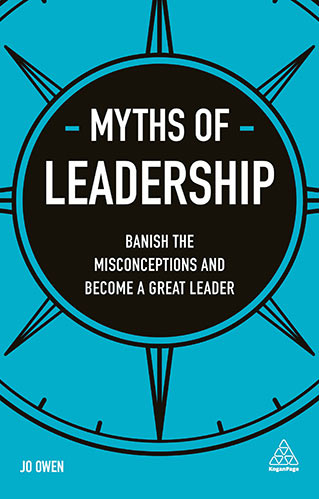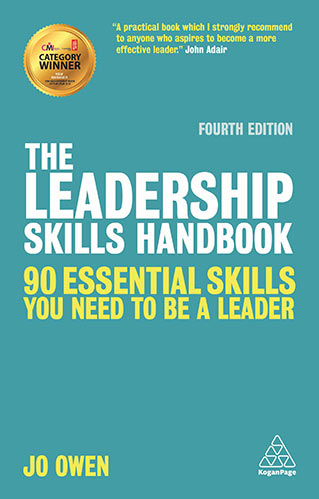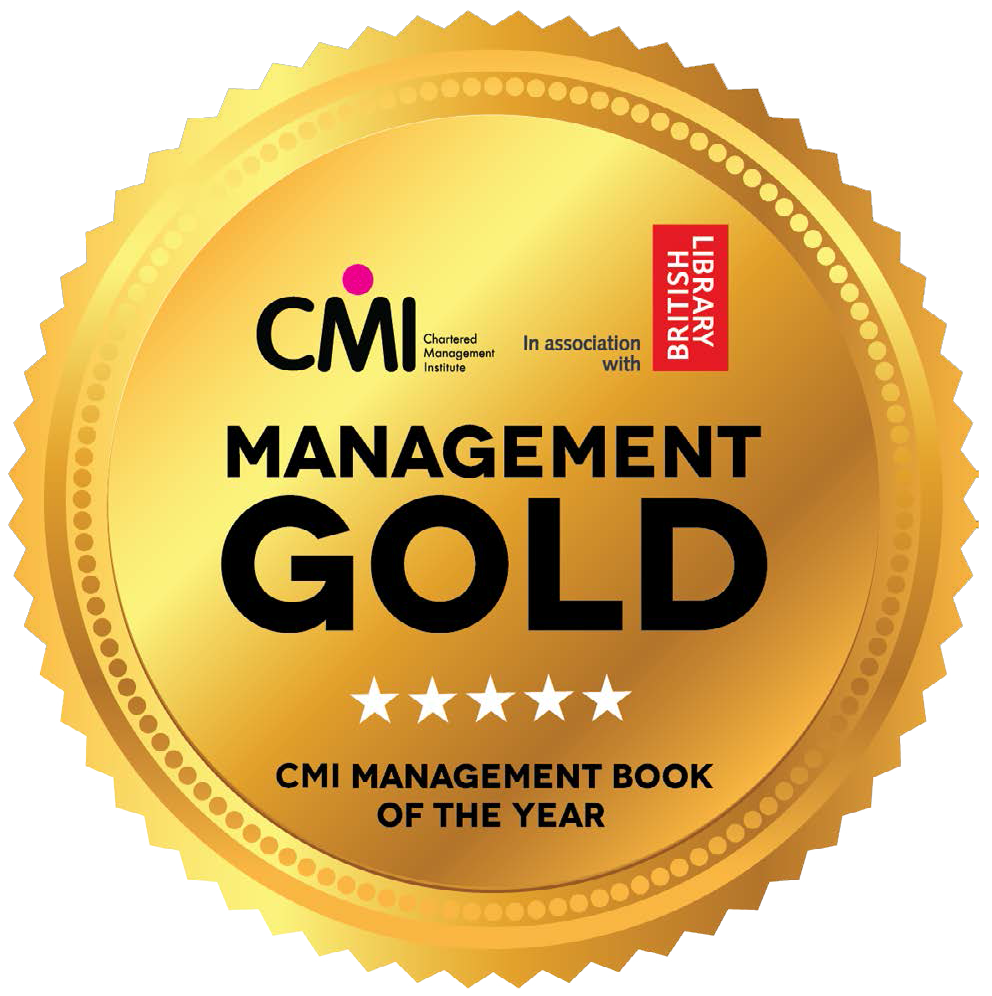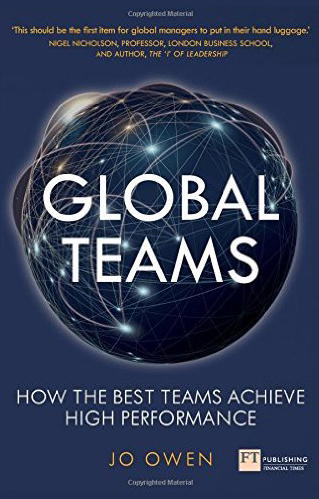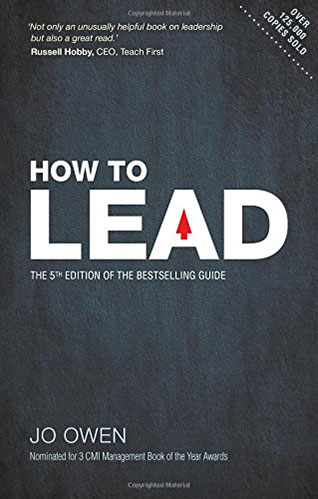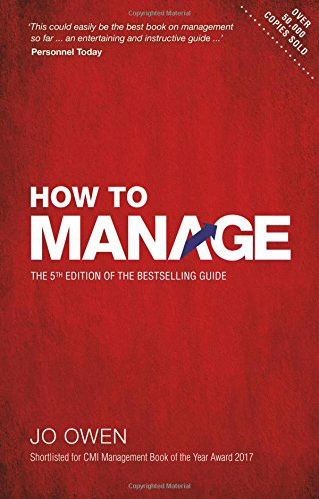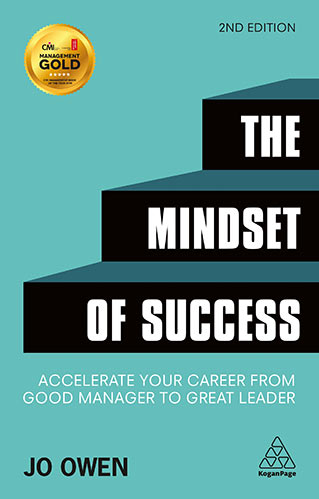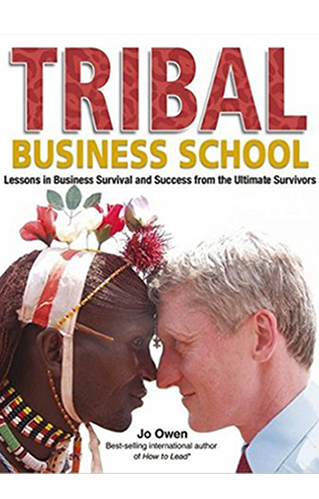Myths Of Leadership
The thinking surrounding what makes the greatest leaders is increasingly muddled by stereotypes, snake oil promises and pseudo-science. The best leaders rely on fact, not fads. This book is a compelling and practical examination of the most pervasive misconceptions about leadership that will help you elevate your own leadership abilities, better inspire your team and empower your organization by thinking differently. Entertaining but evidence-based, it throws out the management jargon and skewers over-hyped leadership trends to bring you the best practical tips you need to become a better leader.
The Leadership Skills Handbook
The fourth edition of this award-winning book, it lays out the ninety essential skills any leader needs to master during their career:
- Mindset skills
- Career skills
- People skills
- Moment of truth skills
- Daily skills
- Organisation skills
- Financial skills
- Political skills
- Strategy skills
This indispensable guidance will boost your confidence, technical abilities and give you the edge on your peers.
Global Teams
Much has been written about globalisation, global firms, global strategy and global organisation. But until now, no one has looked at the plumbing of globalisation: how do teams of people from different time zones, cultures and languages work together to make things happen? Based on original research this shows what it takes to help global teams succeed, from three perspectives:
- Team members: how do you build trust and communicate effectively across cultures? We communicate more than ever, understand each other as little as ever.
- Team leader: leading a global team is extreme leadership. If you can lead a global team you can lead any team, and you build the skills of a 21st century leader: building networks of trust and influence and making things happen through people you may not control or even see.
- The firm: understand what it takes to set the team up for success: building the right talent; deciding the right structure; creating the right rhythms and routines.
Unlike most global books which assume globalisation is short hand for spreading western practice around the world, this book looks at team models from the west and beyond, from the largest to the smallest global firms across most industry sectors.
How To Lead
The definitive book on leadership is now in its fifth edition. The book lays out the skills all leaders need under the IPA agenda:Idea, People, Action
- Idea: how will you make a difference? How to build a compelling strategy and vision which the firm buys into.
- People: how to build and manage the A* team which can deliver your vision
- Action: how to maximise the signal to noise ratio: focus on impact, while managing the day to day noise of operations
The book is based on wholly original research with leaders, and their followers, from over 100 organisations
How To Manage
Described by Michael Skapinker of the Financial Times as “easily the best book on management so far”. How to Manage explores the three sorts of skills managers need to succeed:
IQ skills: such as decision making, managing budgets and finance.
EQ skills: emotional intelligence to manage others and manage yourself
PQ skills: Political skills to make things happen through people you do not control, and to make the organisation work for you.
The Mindset Of Success
The second edition of this award-winning book provides a clearly structured set of tools to change the way you think, act and perform, pushing you beyond good management to great leadership. After 14 years of researching leaders around the world, Jo Owen has found that the best and most successful leaders have something more powerful than just skill. They act differently because they think differently. This book will help you unlock your true potential, showing you how to acquire the seven key mindsets that lead to success, whilst making the most of your existing talent and focusing on your natural strengths.
Tribal Business School
If you think business life is tough, try tribal life. Many tribes have survived far longer, in far harsher conditions with far fewer resources than most modern firms. Tribal Business School shows what business can learn from the great survivors in terms of:
- Change
- Leadership
- Competitive strategy
- Culture and organisation
Based on original research with over twenty traditional societies from Mali to Mongolia, the Arctic to Australia and Papua New Guinea and beyond this gives an inspirational insight into what it really takes to survive and thrive as an individual and a firm.

